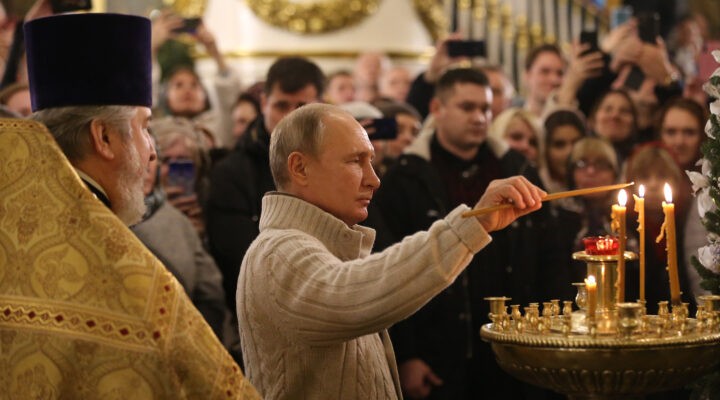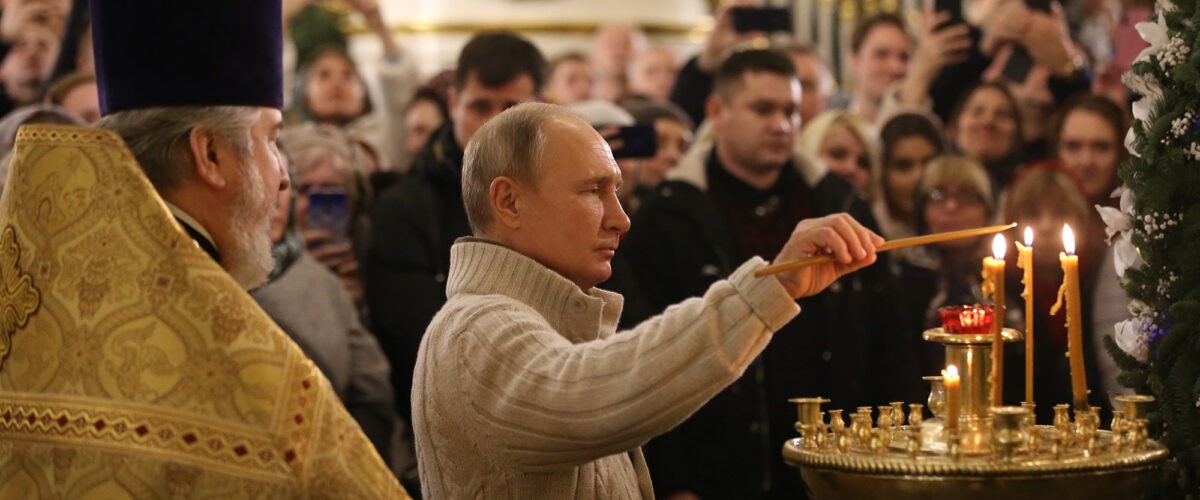For weeks the world has been holding its breath as the simmering tensions between Russia and Ukraine reached a boiling point. When Putin’s Russia invaded Ukraine on Feb. 24, the pot boiled over.
Already we have seen via global news outlets and social media the horrors of the invasion. Death tolls on both sides of the conflict are mounting — and will continue to do so. Thousands of Ukrainians have become refugees, fleeing to Poland and other presumed safe havens in Western Europe. Both in Ukraine and Russia, courageous resisters of the war have let their voices be heard from subway stations in Ukraine — that immediately became impromptu bomb shelters — to the streets of St. Petersburg in Russia.
St. Petersburg is Vladimir Putin’s hometown. His own comrades disapprove of his bold, maniacal assault on a peaceful neighbor. Their public protests should send a message to Putin. For now, Putin is deaf to the outcry.
Those unable to flee have become innocent victims of the ideological aggression.
Pundits are focusing on the political history of the region, including the dissolution of the Soviet Union in 1991 and Putin’s hunger to reshape the bloc.
Those same pundits note that Putin’s Russia appears to be intent upon recovering the power, presence and prominence of an empire that ceased to be in the early 1990s, no matter the costs in lives, economic ruin and congenial regard by the world community.
It is a mess that we will spend decades to understand.
In the midst of the drama a key aspect has been absent or muted. There are religious dimensions in Ukraine and Russia that need to be elevated in global awareness.
“There are religious dimensions in Ukraine and Russia that need to be elevated in global awareness.”
Few in the West are aware of historical divisions within Christianity, all of which were the results of regional, political and theological controversies.
Chronologically, the divisions can be identified as Western Orthodoxy (associated with Rome) clarified in the first ecumenical council in 325 in Nicæa and its presentation of a creed — a confession of faith designed to be comprehensive and authoritative. Orthodoxy is a key word derived from Greek (ορθοδοξία, meaning straight praise or correct confession). Ironically, Western Orthodoxy came to be dominated by those churches whose primary language was Latin.
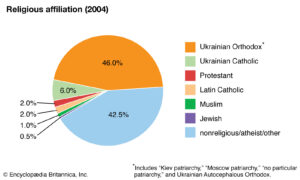 For 700 years, churches and church leaders in the West, who spoke, thought and wrote in Latin dominated the church. Those in the East chafed under Western formulations of theology. Finally, in 1054, the Great Schism changed the landscape of the church. Eastern Orthodoxy bent toward experience and symbols as opposed to the rigors of the West that emphasized reason and rigid traditions. Eastern Orthodoxy’s theology had its own nuances of reason, rooted in Greek.
For 700 years, churches and church leaders in the West, who spoke, thought and wrote in Latin dominated the church. Those in the East chafed under Western formulations of theology. Finally, in 1054, the Great Schism changed the landscape of the church. Eastern Orthodoxy bent toward experience and symbols as opposed to the rigors of the West that emphasized reason and rigid traditions. Eastern Orthodoxy’s theology had its own nuances of reason, rooted in Greek.
Over the centuries, Eastern Orthodoxy was transformed by culture and language, including Greek, Russian and a raft of subcultures (including Ukraine).
The third division emerges with the Protestants — those like Luther, Zwingli and Calvin (all in the 16th century) — who pushed against the rigidity of faith statements and practices that had become the core of the Western (Roman) Church.
Ukrainian religious society is dominated by its nuanced Eastern Orthodox past and present.
As a Baptist and a pacifist, I ache with Ukrainian and Russian critics of the war that is unfolding before us. (As an aside: I remember how the up-to-date coverage and video of the horrors of the Vietnam War in the 1960s and 1970s pushed many toward resistance and pacifism. I hope the same for our current global crisis.)
Both the Russian and Ukrainian constitutions affirm religious liberty, as does the Constitution of the United States.
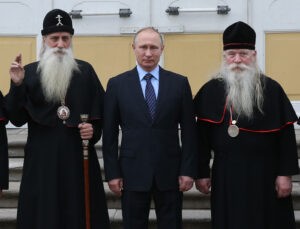
Russian Preisdent Vladmir Putin (C) and Metropolitan Korniliy (L) and other hierarchs pose for a photo while visiting Russian Orthodox Old-Rite Church at Rogozhskoye Cemetery in Moscow, Russia, May 31, 2017. (Photo by Mikhail Svetlov/Getty Images)
Putin has cozied up to the Russian Orthodox Church with questionable motives.
Pay attention: The Kremlin is St. Basil’s Cathedral. Putin, it appears, has co-opted the church. It is a common goal of despots.
Adolf Hitler co-opted the church and promoted a Christian nationalism in Germany. The result across Western Europe in post-World War II was a society that lost faith in communities that embraced the array of Christian and Jewish values.
In the United States, we are facing a wave of Christian nationalism that threatens religious liberty in the name of religious fervor that rejects freedom of consciousness in the realms of race, gender and social status.
A recent article by Diana Butler Bass offers a helpful reminder of what is at stake in the current struggle between Ukraine and Russia.
What is unfolding in Ukraine and surrounding regions is not merely post-Cold War politics. It is a new chapter in world history that stretches back to the Babylonian invasion of Judah and Jerusalem in the sixth century bce, the Roman occupation of the region in the first century — the sacking of Jerusalem in 70 ce and a string of atrocities rooted in religious suppression.
Finally, I want to be clear: Dispensational-minded interpreters of the current situation have, again, tried to bend the events to their warped theology of history. They claim our current events are fulfilments of “biblical prophecy.”
Balderdash!
Christian Scripture does not isolate and reflect upon political regimes as part of some divine plan.
Christian Scripture does, however, expose the lusts of power for the sake of power steered toward the establishment of empires.
We — globally — are again in the soup.
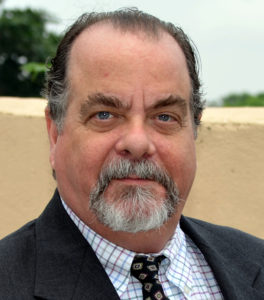
Richard Wilson
Richard Francis Wilson is professor of theology in the Columbus Roberts Department of Religion and former chair of the department in Mercer University’s College of Liberal Arts and Sciences. He was president of the Liberia Baptist Theological Seminary near Monrovia from 2014 to 2016.
Related articles:
Let’s be clear: Putin’s invasion of Ukraine is not about the rapture and Russia in biblical prophecy | Analysis by Rodney Kennedy
Ukrainians want peace, regardless of their religion | Analysis by Rob Sellers

